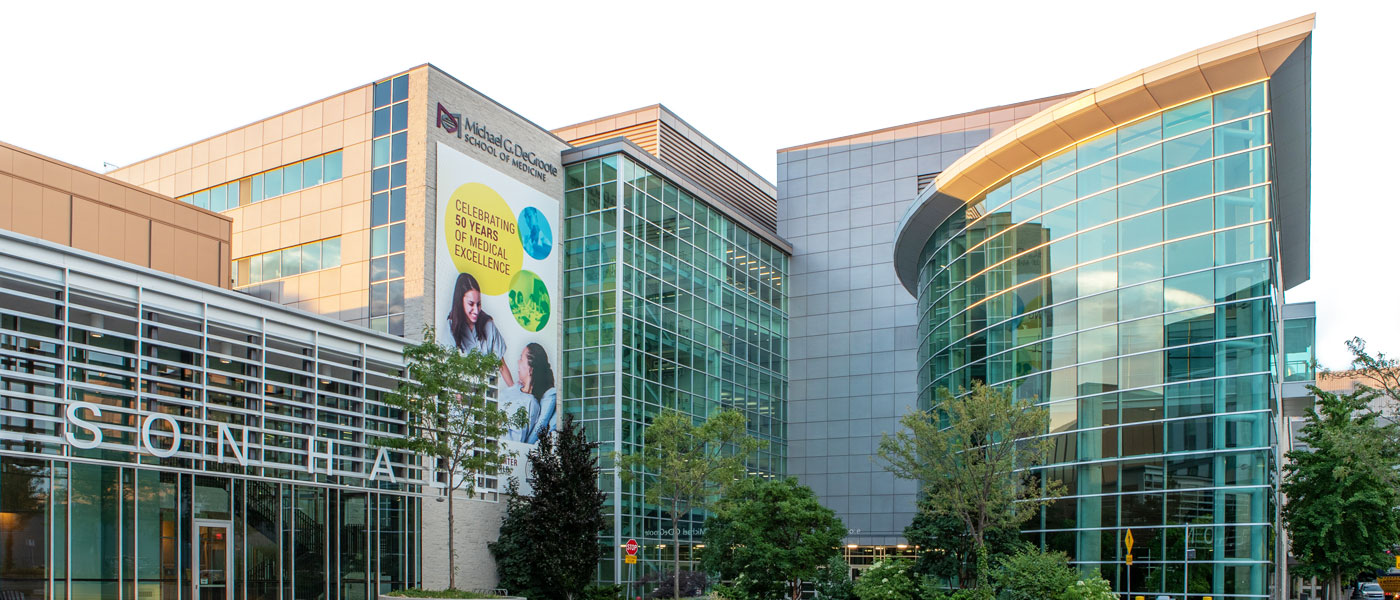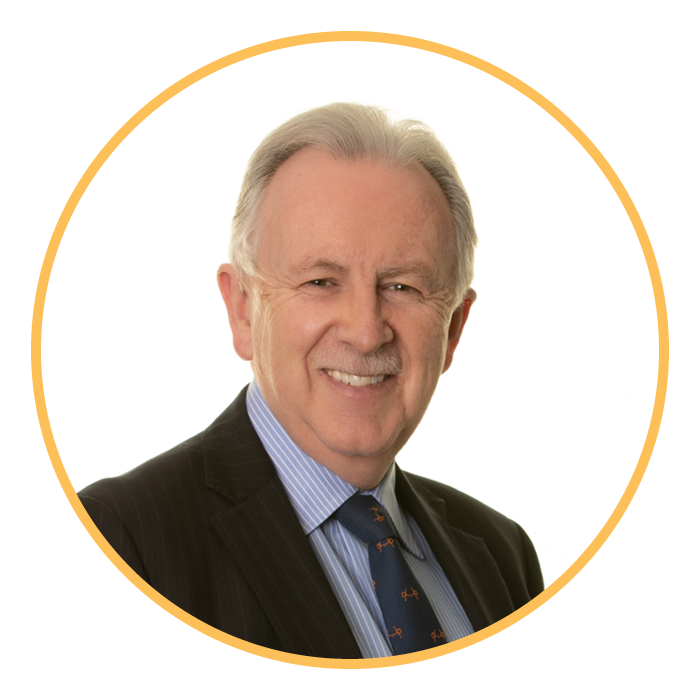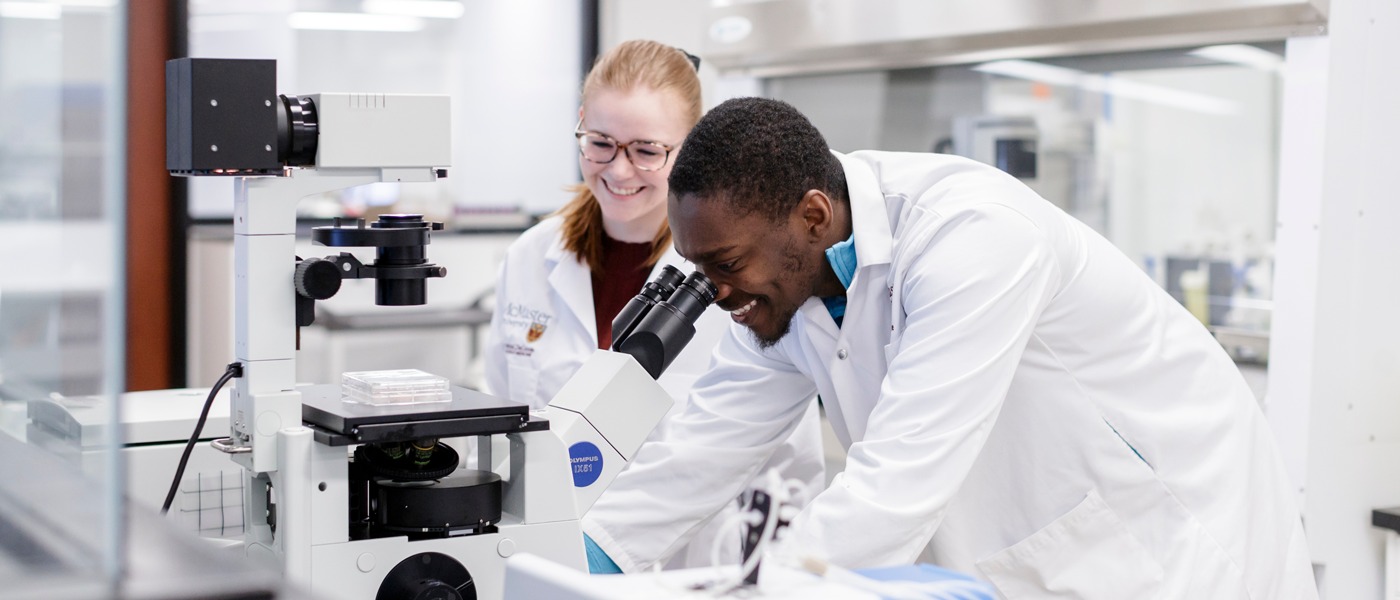The Faculty of Health Sciences at McMaster is the birthplace of problem-based learning and evidence-based medicine, which the British Medical Journal (PDF) describes as one of the most important medical advances in the past 150 years.
Problem-based learning (PBL) is the student-centred approach in which students learn by working in groups to solve an open-ended problem. The emphasis is on the student to be an active participant in their learning. Evidence-based medicine (EBM) combines leading research data with clinical expertise and patient values, using the best evidence to give patients the best possible care.
David Sackett, one of the School of Medicine’s founding fathers, is considered the father of evidence-based medicine who, along with Gord Guyatt (who coined the term in 1990) and Brian Haynes, led the EBM movement in its application to clinical practice.

Our History
1946 – The School of Nursing at McMaster is founded.
1965 – McMaster establishes a medical school and teaching hospital.
1965 – The medical school goes on to pioneer “problem-based learning,” known around the world as the McMaster Model.
1972 – McMaster University Medical Centre opened and McMaster University’s medical school and its innovative curriculum were created.
1974 – The Faculties of Health Sciences is established under the leadership of the Dean and Vice-President.
1988 – The concentration of specialized pediatric services at McMaster University Medical Centre was recognized with the designation of the Children’s Hospital.
1989 – The School of Occupational Therapy and Physiotherapy later renamed the School of Rehabilitation Science is established.
1993 – McMaster launches the first Midwifery Education Program in Canada.
2000 – The Faculty launches the world-renowned Bachelor of Health Sciences (Honours) program.
2002 – The Children’s Hospital is renamed McMaster Children’s Hospital.
2002 – McMaster revolutionized the traditional medical school interview process by pioneering the Multiple Mini Interviews (MMI) approach.
2003 – The university celebrates a transformative $105-million gift from Michael G. DeGroote supporting education, medical research and health care.
2004 – The McMaster University School of Medicine becomes the Michael G. DeGroote School of Medicine, the first named medical school in Canada.
2005 – The Casper (Computer-Based Assessment for Sampling Personal Characteristics) test was developed by researchers at McMaster University. It is a situational judgement test (SJT) that aims to measure traits like professionalism, ethics, communication, and empathy.
2007 – Hamilton philanthropist David Braley commits $50 million to enhance the Michael G. DeGroote School of Medicine, family medicine and seed research discoveries for conditions such as cancer, Alzheimer’s, heart disease and diabetes.
2007 – The Waterloo Regional Campus of the Michael G. DeGroote School of Medicine opened.
2008 – McMaster’s Michael G. DeGroote School of Medicine opened its Niagara Regional Campus.
2008 – McMaster University became the first institution in Ontario to launch a Physician Assistant Education Program and Canada’s first civilian program at an undergraduate level.
2012 – The Boris family gives a $30-million gift to accelerate innovations in health research, education and care.
2014 – Philanthropist Michael G. DeGroote surprises graduating medical students at Convocation, announcing a $50-million gift supporting national and international health leadership as well as partnerships focused on biomedical advances.
2016 – The Faculty of Health Sciences opens the David Braley Health Sciences Centre, a 192,000 square foot facility, to be used by the Family Medicine department, Hamilton Public Health and other various academic divisions of the Michael G. DeGroote School of Medicine.
2017 – The Faculty of Health Sciences engages in collaborative work with on and off campus partners to develop a comprehensive Indigenous Health Initiative (IHI).
2019 – Hamilton philanthropists Charles and Margaret Juravinski announce an endowed legacy gift of more than $100 million to support health researchers at Hamilton Health Sciences, McMaster University and St. Joseph’s Healthcare Hamilton.
2021 – The university celebrates Chancellor Emerita Suzanne Labarge’s newest gift in support of aging research, the MIRA | Dixon Hall Centre, the latest gift in her longstanding philanthropic giving to McMaster, totaling almost $35 million.
2022 – Opening of the Indigenous Health Learning Lodge, a new home for Indigenous faculty, staff, and learners, as well as others who want to learn about Indigenizing health science education and Indigenous culture.
2022 – McMaster becomes the only school in Canada to offer a master’s degree in midwifery.
2022 – Marnix and Mary Heersink give more than $32 million to boost McMaster University’s role as a hub for biomedical innovation, entrepreneurship and global health.





